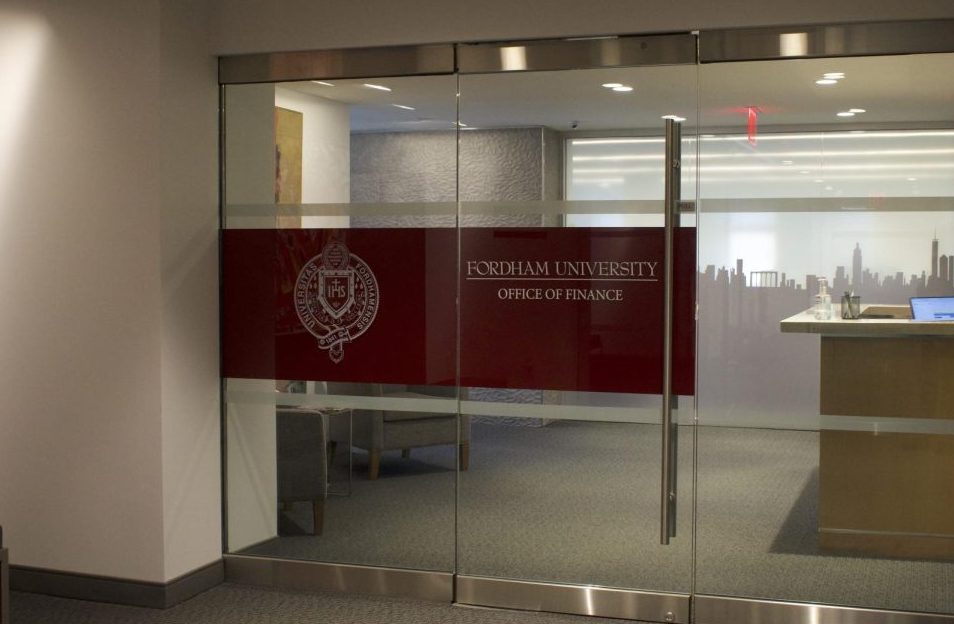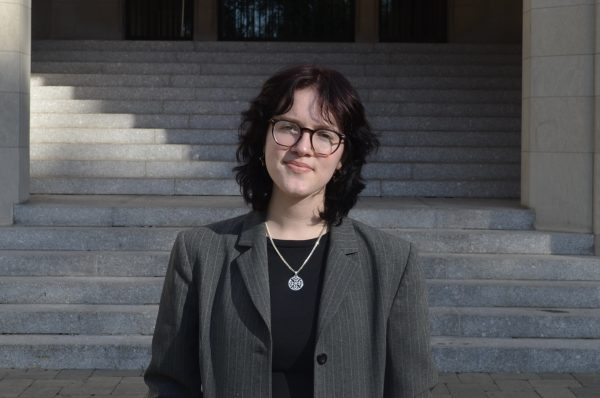Fordham University recently announced it would be instating a hiring pause and budget cuts for the Fiscal Year (FY) 2026. The news was shared in an email from the University’s Chief Financial Officer (CFO) Tokumbo Shobowale on March 14.
“This year, we forecast a budget deficit for the upcoming fiscal year due to a combination of factors, including external uncertainty associated with federal funding and the graduation of our largest undergraduate cohort in Fordham’s 184-year history,” Shobowale stated in an email. “Taking proactive steps such as the budget freeze helps to ensure the University’s financial stability without compromising our core mission.”
The hiring pause requires all position requests — when a member of staff requests a job posting be opened — to be reviewed by a relevant vice president and then the president’s cabinet, according to the email sent by Shobowale.
According to Sharif Mowlabocus, the Communication and Media Studies Department chair, Provost Dennis Jacobs discussed the hiring pause at the Faculty Senate meeting on Feb. 28.
“[Jacobs said] the hiring freeze is in the clerical and administrative [departments] for sure; however, he still sees that there will be a round of faculty-based hires in 2026,” said Mowlabocus, who also serves on the Faculty Senate. “As a chair from a staffing perspective, I’m concerned, but I do not understand the CFO’s email as immediately imposing a freeze upon my hiring.”
Positions that are currently open or people who are in the process of being hired will continue in their current course, according to Shobowale.
“Some open positions will be filled because they are necessary for safety or the delivery of essential student services,” said Shobowale. “Other roles, such as tenure-track faculty positions, are critical to delivering upon exceptional learning experiences.”
There is currently no end date for the hiring pause. Shobowale attributes this decision to “all that is happening with the federal government and reductions in public funding for higher education.”
In addition to pausing hiring, all departments are expected to reduce their non-staff spending by 10% for FY ’26, which runs from September 2025 to September 2026.
“We will have to be making some difficult decisions,” said Mowlabocus. “I’m committed to making sure the student experience is maintained. […] but I also have to balance that with the needs of my faculty.”
Currently, the University is dealing with the incoming “demographic cliff,” which refers to the reduced number of births during the 2008 financial crisis. This age group is in the process of applying to colleges.
“Now, previously, the Provost has said that for us, it’s less of a cliff and more of a step-down,” said Mowlabocus. “There are other colleges around, I’ve been told, that really will be suffering this massive drop.”
According to Shobowale, the graduation of the post-COVID-19 class and smaller class sizes due to the demographic cliff will impact the University’s finances.
“Both the hiring pause and the reduction in non-staff costs apply to all units across the university,” said Shobowale. “However, the largest reductions in non-staff costs are coming in administrative units, and we have not suspended any of the faculty hiring searches in progress.”
Mowlabocus has concerns about how departments are supposed to implement this spending reduction.
“The first communication that I’ve received from the CFO about the budget since a communication around this time last year […] was this communication, and since then, there has been no follow-up communication,” he said. “We were aware […] that there could be budgetary constraints. I think the concern that many people have had is that up until this point, there has been a sizable increase in the number of highly paid administrators in Fordham.”
The spending decrease came after Fordham announced an increase in tuition, meal plan and room costs for the 2025-26 academic year, and a $100 million donation was given to the University.
“The $100 million gift was restricted, as are most gifts, to support a particular area or project — in this case, the construction of the new STEM building,” said Shobowale. “As such, the University is legally prohibited from using these funds for current salaries or other ongoing operating costs.”
Fordham also recently had its annual Founders Dinner, which raised $2.5 million for the scholarship fund.
“I also want to say, we need to have a strong marketing department, we need to have a strong fundraising department, I don’t doubt that,” said Mowlabocus. “But [if] you’re marketing a university [if] you are raising funds for a university, you need highly qualified experienced educators to teach in the university.”








































































































































































































